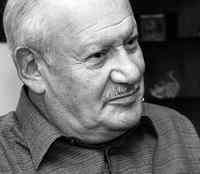Indian oil minister, Sudini Jaipal Reddy:
- “Higher oil prices raise the cost of fertilizers, hence the cost of food, thus hitting hard the poorest economies and the poorest within those poor economies”.
- “High oil prices lead to domestic inflation, increased import cost, higher interest rates and slow economic growth”.
- “A sustained $10/b increase in the oil Price leads to a 1.5 reduction in the GDP of developing countries”.
- Warns of the risk of a “sharp demand destruction in the second half of the year”.
- Will invest $280 Bn over five years in 166 upstream projects to increase crude output capacity. These projects will provide a net increase in crude and condensates output of around 7 Mn b/d.
- Expects its production capacity of 3 Mn b/d to rise to 3.4 Mn b/d by the end of this year. A further capacity increase of 500,000 b/d in 2013 and an additional increase of 700,000 b/d in 2014 will take capacity to 4.5 Mn b/d by the year 2015
Emirates Oil Minister, Mohammed
al-Hamli:
- UAE is making investments to increase its crude capacity by 200,000 b/d by the end of 2012.
- Kuwait “will spend some $170 Bn over the next 10 years” to meet its “2020-30 vision” of reaching capacity of 4 Mn b/d, “starting in 2020 and going on to 2030”.
- Has built up 80 Mn barrels of domestic crude inventories and 10 Mn barrels of stocks abroad in a bid to convince the market that it is serious about meeting any increased demand for its crude from buyers.
- The EU imports more than 80 percent of its oil needs and “even with our energy efficiency and broader energy base strategy this figure may increase up to 90 percent or more within 10 years”.
- The growth of U.S. unconventional oil and natural gas is one limit to OPEC’s influence.


